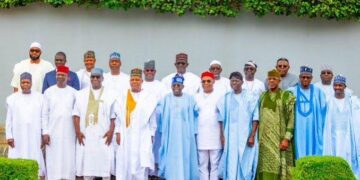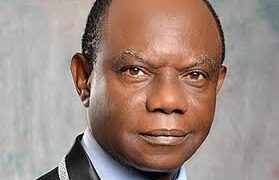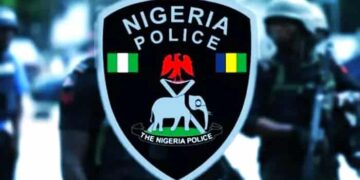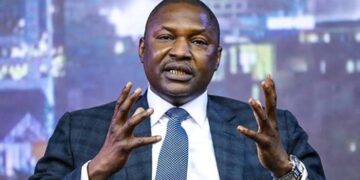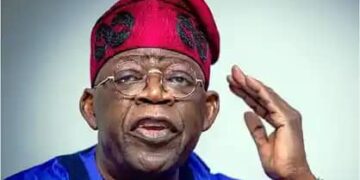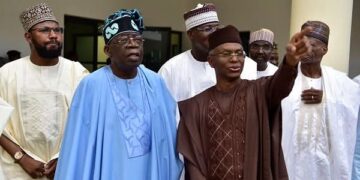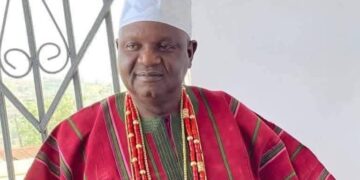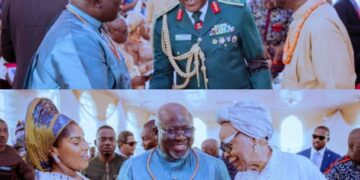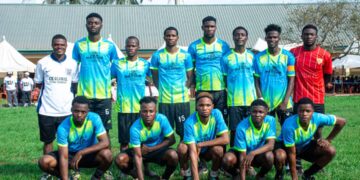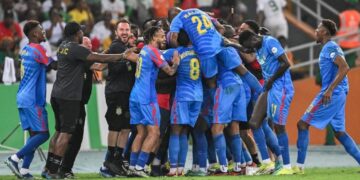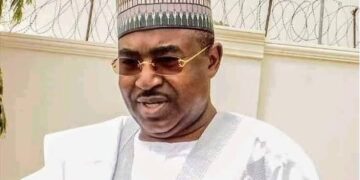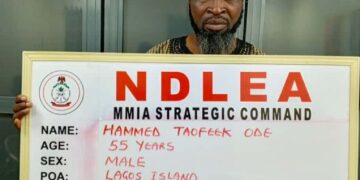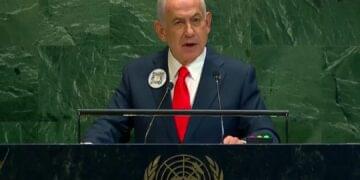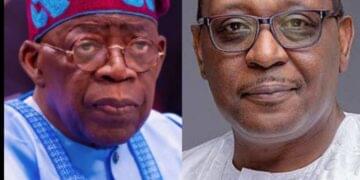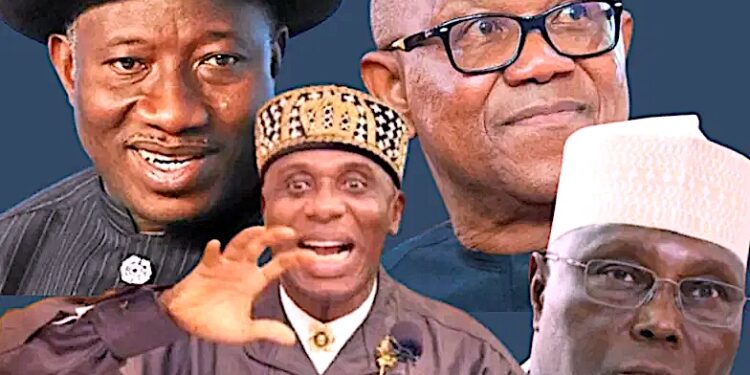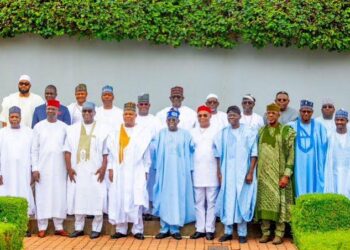Nigeria’s 2027 presidential election race is still more than two years away. Yet, political permutations in the opposition camp have already begun in earnest.
At the centre of the drama are four big politicians - Atiku Abubakar, Peter Obi, Rotimi Amaechi and former President Goodluck Jonathan, plotting to get the tickets of the African Democratic Congress (ADC) and the Peoples Democratic Party (PDP).
This early contest is not just about who will face President Bola Tinubu at the polls; it is also about who will emerge as the leading candidate in the race. It is also about control of party structures, coalition politics, and the strategic positioning of old rivals and new contenders.
While the country’s electoral umpire, the Independent National Electoral Commission (INEC), monitors the political trends and prepares for the 2027 election, the contestants are already in the ring, ready for a fight to the finish.
Atiku’s quiet moves in the ADC
Even though Atiku has not officially declared his intention to contest in 2027, his political influence within the ADC coalition is unmistakably clear.
According to reports, some positions in the ADC’s National Working Committee (NWC), Board of Trustees, and state chapters are currently occupied by Atiku’s loyalists. This arrangement, according to political analysts, is a ploy to ensure that the party’s presidential ticket tilts in Atiku’s favour.
For now, the former Vice President remains quiet about his perceived ambition, but his behind-the-scenes activities are fueling speculations that he is preparing for another run at the presidency.
Obi’s coalition challenges
With a profile that presents him as a rare politician, Peter Obi, the 2023 Presidential candidate of the Labour Party, entered the ADC coalition with high expectations. He positioned himself as a credible candidate who has the capacity to change the country’s fortunes within four years. This was meant to appeal to voters tired of long-term power retention by political elites.
However, Obi’s journey within the ADC has not been smooth. In August, a leaked memo from the Obidient Movement raised concerns about their exclusion from key decision-making processes in the coalition.
The memo suggested that the movement’s members were being sidelined by the party’s leadership, which is believed to be largely aligned with Atiku.
“Several of our designated representatives and members are reportedly being excluded from crucial meetings where major decisions affecting the coalition are made.
“This creates an impression of marginalisation and undermines trust, which is essential for building a sustainable partnership,” the movement said in the memo.
While Obi still enjoys online popularity, his hopes of securing the ADC presidential ticket are not certain, as Atiku allegedly maintains his grip on the party’s internal machinery.
Amaechi’s confidence and calculations
Rotimi Amaechi, a former Minister of Transportation and ex-governor of Rivers State, is also eyeing the ADC ticket. Unlike Atiku, Amaechi is not going through corners to register his moves. The ex-governor has openly declared his interest, and he’s ready to challenge the ruling APC narrative for narrative.
Banking on his past relationship with the APC and Tinubu, Amaechi, during a conversation on X space recently, urged the ADC to give him the ticket, saying his insider knowledge of Tinubu and the ruling party could increase the ADC’s chances.
“I know Tinubu very well. I know his strengths. I know his weaknesses. And I know that if allowed to fly the flag of ADC, I will defeat Tinubu for sure,” he said.
However, in a party already influenced by Atiku and contested by Obi, Amaechi’s path to the ticket will require him to count less on his insider knowledge and build strong alliances within the party’s framework.
PDP’s subtle moves to woo Obi
Interestingly, while Obi wrestles with internal coalition politics, the PDP is not standing idly by. Several party leaders, including the Chairman of the PDP Governors Forum, Governor Bala Mohammed, have called on him to return to the party.
For the PDP, Obi’s return would not only strengthen its electoral chances but also reunite a fractured opposition base.
However, not all PDP members see Obi as the best option for 2027. Some believe his four-year single-term promise is mere rhetoric.
In a recent interview, a PDP chieftain, Umar Sani, stated that the North would prefer Jonathan to Obi, describing the latter’s promise to spend four years in power as mere “political talk.”
Jonathan’s surprise comeback talks
Since 2019, political conversations ahead of elections have portrayed former President Goodluck Jonathan as a political wildcard, whose name pops up every election cycle.
In the 2027 permutations, the possibility of Jonathan’s comeback has already been thrown into the mix.
Former governor of Jigawa State, Sule Lamido, and a few other PDP chieftains believe that the ex-president has unfinished business in Aso Villa. According to Lamido, Jonathan remains the party’s best option to challenge Tinubu.
By Nigeria’s constitution, Jonathan, who served as president from 2011 to 2015, is still eligible to contest for another single four-year term, and if the ex-president decides to join the race, his return would definitely drown Obi’s single-term narrative.
The PDP–ADC rivalry beneath the surface
Beneath the individual ambitions lies a subtle political rivalry between the PDP and ADC. The two parties, while sharing some members and allies, are also competing for the same pool of opposition votes.
If the PDP successfully pulls Obi back into its fold, it could weaken the ADC’s position and disrupt its coalition strength. On the other hand, if the ADC presents Atiku or Obi, it could challenge the PDP’s dominance as the main opposition party.
The stakes are high because both parties recognize that whoever wins the internal ticket battle will have the best chance of taking on the APC in 2027.
The game is on, and permutations are free to fly. But the next few months will reveal whether these contenders will clash head-on or find ways to align for a stronger challenge against the ruling APC.
In any case, the battle for the ADC and PDP’s presidential tickets is more than a fight for party nominations. It is a contest that could shape Nigeria’s opposition politics beyond 2027.

